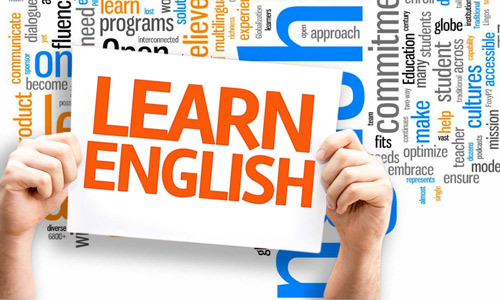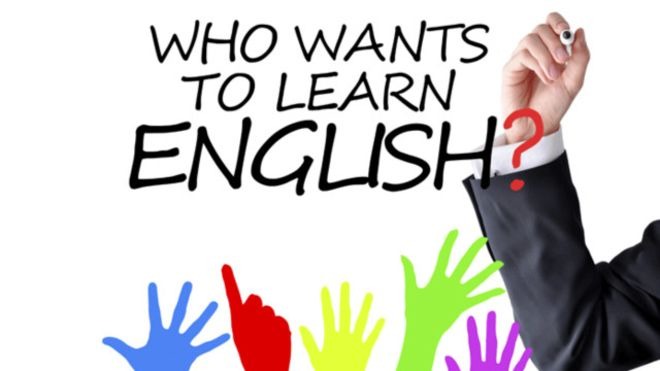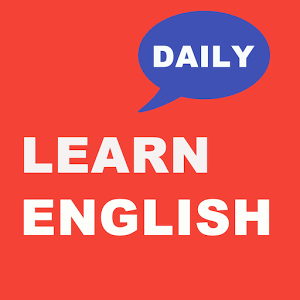
Bài tập tiếng Anh lớp 10 unit 9 có đáp án
Bài tập tiếng Anh lớp 10 unit 9 chủ đề Undersea world kèm đáp án chuẩn dưới đây sẽ giúp các em luyện tập tiếng Anh tại nhà tốt hơn. Cùng học tiếng Anh trên trang English4u nhé.
Bài tập tiếng Anh lớp 10 unit 9 chủ đề Undersea world kèm đáp án chuẩn dưới đây sẽ giúp các em luyện tập tiếng Anh tại nhà tốt hơn. Cùng học tiếng Anh trên trang English4u nhé.

Luyện bài tập tiếng Anh tại nhà
Bài tập tiếng Anh lớp 10 kèm đáp án chuẩn
UNIT 9: UNDERSEA WORLD
I. Circle the word that is pronounced differently from the others.
|
1. bear |
leave |
peace |
cheap |
|
2. near |
here |
ear |
meat |
|
3. hair |
chair |
rain |
air |
|
4. tour |
pour |
four |
thought |
|
5. gulf |
hunt |
sure |
ourrent |
|
6. where |
share |
wear |
fear |
|
7. cheer |
feed |
deep |
sea |
|
8. pear |
clear |
sphere |
idea |
|
9. heir |
dear |
their |
care |
|
10. group |
souvenir |
through |
should |
II. Complete the sentences with the correct form of the words in the box.
|
challenge discover depend investigate contribute cover conserve entrap maintain mystery |
1. Scientists have made many important new……………..of the depth by using modern devices.
2. Community police have made a very positive……………..to crime prevention.
3. This new discovery……………..traditional beliefs.
4. They are investigating the……………..disappearance of a young woman.
5. Seventy-five percent of the earth surface is……………..by water.
6. The power station has been shut down for essential……………..
7. The……………..of the seabed is being carried out.
8. Sperm whale populations are at risk due to hunting and their accidental……………. in fishing nets.
9. By the age of eighteen he was complete……………..of his parents.
10. The government has just set up a wildlife……………..project.
III. Choose the word or phrase that could best explain the underlined word or phrase in each sentence.
1. If modern technology did not exist, we would never have such precious information.
|
a. valuable |
b. precise |
c. confidential |
d. detailed |
2. Some marine animals are dangerous to humans.
|
a. living in the mountain |
b. living in the ocean |
|
c. living in the forest |
d. living in the house |
3. The floor was covered in tiny pieces of paper.
|
a. unimportant |
b. many |
c. very large |
d. extremely small |
4. Sperm whales and sharks are carnivores.
|
a. animals that live in the sea |
b. animals that only eat plants |
|
c. fish that aren’t born from eggs |
d. animals that eat meat |
5. We enjoyed the warm water of the Gulf of Thailand.
|
a. a small sea |
|
b. a large area of ocean almost surrounded by land |
|
c. a part of the sea enclosed by a wide curve of the shore |
|
d. a large area of water surrounded by land |
6. Hunan infants have a gestation period of nine months.
|
a. the time during which a human baby develops inside its mother |
|
b. the time when a stomach digests food |
|
c. the time of eating food |
|
d. the time of growing up |
7. We had an accidental meeting with an old friend at the party last night.
|
a. unpleasant |
b. unexpected |
c. unlucky |
d. unacceptable |
8. How many offspring does a sperm whale usually have?
|
a. eggs |
b. mammals |
c. babies |
d. diets |
IV. Complete these sentences with should/ shouldn’t + infinitive (or a passive form) using one of these verbs: include, keep, meet, refrigerate, stay, break, tell, warn, take, play.
1. Those boys……………..football on the street. It’s very dangerous.
2. This medicine……………..in a cool place.
3. You……………..him about this deal. It’s supposed to be absolutely confidential.
4. Here’s someone you really……………..
5. She……………..in bed all day unless she’s ill.
6. According to the label, the jam……………..after opening.
7. You’ll catch cold if you go out like that. I think you……………..a hat.
8. People……………..of the danger of swimming off this beach.
9. This information you send……………..details of courses taken at university.
10. People……………..their promises.
V. Give advice to the following people. Use I think……should or I don’t think..…should and one of these phrases.
|
Go to the dentist |
Take them back to the shop |
|
Tell your bank |
Wait |
|
Go to work |
Tell them to buy fruit |
|
Drive |
Be more careful |
|
Write to people |
Work so hard |
1. Jenny and Tony are only sixteen, but they say they want to get married.
I think they should wait.
2. Kate is crying because I knocked her over. We were playing a game.
…………………………………………………………………………………………...
3. Peter’s got a very bad cold.
…………………………………………………………………………………………...
4. Ann’s phone bill was enormous! Three hundred pounds!
…………………………………………………………………………………………...
5. Keith wants to drive home, but he hasn’t got his glasses.
…………………………………………………………………………………………...
6. One of my teeth is loose.
…………………………………………………………………………………………...
7. I’ve lost my cheque book and credit cards.
…………………………………………………………………………………………...
8. My shoes have got a hole in them. I only bought them last week!
…………………………………………………………………………………………...
9. My children spend all their pocket money on sweets.
…………………………………………………………………………………………...
10. I’m always tired because I’ve been working very hard.
…………………………………………………………………………………………...
VI. Put the verb into the correct form.
1. If my grandfather…………….(be) still alive, he would be a hundred today.
2. I…………….(offer) to give you a lift if I had my car here.
3. Where…………….(you/ choose) if you could live anywhere in the world?
4. If you…………….(drive) from London to Glasgow, which way would you go?
5. If I…………….(live) out of town, I…………….(take) up the garden.
6. We…………….(not have) any money if we…………….(not work)
7. I…………….(not mind) living in England if the weather…………….(be) better.
8. If I were you, I…………….(not wait), I…………….(go) now.
9. If we…………….(have) more reliable car, we…………….(drive) to Spain rather than fly.
10. If Mr Morgan…………….(be) still head teacher, he…………….(not permit) such bad behavior.
VII. Comment on these situations. Use a type 2 conditional.
1. Alan always overeats at lunch because he never cats breakfast.
If Alan ate breakfast, he wouldn’t overeat at lunch.
2. I don’t know enough about the machine, so I can’t mend it myself.
…………………………………………………………………………………………...
3. I don’t ride the bus to work every morning because it’s always so crowded.
…………………………………………………………………………………………...
4. Not enough money is spent on cancer research, so a prevention has not been found.
…………………………………………………………………………………………...
5. The wind is blowing hard, so I won’t take the boat out for a ride.
…………………………………………………………………………………………...
6. Nick can’t find the way because he hasn’t got a map.
…………………………………………………………………………………………...
7. Schrooder ignores Lucy, so she gets angry at him.
…………………………………………………………………………………………...
8. I can’t look the word up because I haven’t got a dictionary.
…………………………………………………………………………………………...
9. Linus is smart, so he finds clever solutions to life’s problems.
…………………………………………………………………………………………...
10. We don’t visit our parents very often because they live so far away.
…………………………………………………………………………………………...
VIII. Complete these conversations. Put the verbs in brackets into the first-or second conditional.
1. A: We’re not late, are we?
B: No. We………………...(be) fine if we………………...(leave) in the next ten minutes.
2. A: Come on, can’t you and Anne be friends?
B: No, I………………...(speak) to her again unless she………………...(say) sorry for what she’s done.
3. A: So you think it’s my fault that I feel so tired?
B: Yes, you………………...(feel) much better if you………………...(go) to bed at a reasonable time.
4. A: What’s your idea of the most perfect place for a holiday?
B: I think I………………...(go) to the Seychelles if I………………...(have) the money.
5. A: Do you and your brother get together very oftern?
B: No, we………………...(see) each other more if we………………...(live) closer, but he lives in Scotland.
6. A: Is it going to be a big party?
B: Yes, if most people………………...(come), there………………...(be) about 100 of us.
7. A: Let’s go to the beach.
B: No, it’s too cold. If it………………...(be) warmer, I………………...(not mind) going to the beach.
8. A: I don’t know what happened to my dictionary. I’ve looked everywhere for it.
B: What………………...(you/do) if you………………...(not find) it?
9. A: Do you have any plans for next year?
B: Well, I………………...(travel) if I………………...(can afford) it.
But I don’t have any money.
10. A: Why do you read newspapers?
B: Well, if I………………...(not read) newspapers, I………………...(not know) what was happening in the world.
IX. Choose the correct completion.
1. I’m not an astronaut. If I……………an astronaut, I……………my camera with me on the rocket ship.
|
a. am/ will take |
b. was/ would take |
|
c. were/ had taken |
d. was/ would have taken |
2. Don’t throw aerosol into a fire. An aerosol……………if you……………it into a fire.
|
a. will be exploded/ throw |
b. would explode/ threw |
|
c. explodes/ will throw |
d. can explode/ throw |
3. That sounds like a good ofter. I……………it if I……………you.
|
a. had accepted/ were |
b. will accept/ am |
|
c. would accept/ were |
d. accepted/ were |
4. Nora is using my car right now. If she……………it back in time, you’re welcome to borrow it.
|
a. brought |
b. would bring |
c. will bring |
d. brings |
5. If energy……………inexpensive and unlimited, many things in the world be different.
|
a. is |
b. was |
c. had been |
d. would be |
6. If you……………all of my questions, I……………anything to help you.
|
a. don’t answer/ can’t do |
b. didn’t answer/ won’t do |
|
c. wouldn’t answer/ can’t do |
d. wouldn’t answer/ couldn’t do |
7. If I……………wings, I……………take an airplane to fly home.
|
a. have/ won’t have to |
b. had/ wouldn’t have |
|
c. have/ will have to |
d. had/ didn’t have to |
8. ‘Here’s my phone number.’
thanks, I……………you a call if I……………some help.
|
a. will give/ will need |
b. would give/ needed |
|
c. give/ need |
d. will give/ need |
9. If we……………serious about pollution, we……………more money on research.
|
a. had been/ spent |
b. were/ had spent |
|
c. were/ would spend |
d. are/ will spend |
10. Sea water is salty. If the oceans……………of fresh water, there……………plenty of water to irrigate all of the deserts in the world.
|
a. consisted/ would be |
b. consisted/ were |
|
c. would consist/ could be |
d. consist/ will be |
X. Read the passage carefully, then choose the correct answer – a,b,c or d.
Most people are afraid of sharks, but they usually do not know much about them. For example, there are about 350 species of sharks that live in oceans over the world. All of the sharks are carnivores, but most of them don’t attack people. Some sharks are very small – the smallest shark is about 6 inches long – about as long as your hand. But some sharks are very large. The largest species of sharks may be 60 feet long and weigh 15 tons. Unlike many other kinds of fish, sharks do not have bone. Their bodies are made up of a kind of tough white flexible material (called cartilage). Sharks do not have ears. However, they ‘hear’ sounds and movements in the water. Any sound or movement makes the water vibrates. Sharks can feel these vibrations, and they help the sharks find food. Sharks use their large eyes to find food, too. Most sharks see best in low light. They often hunt for food at dawn, in the evening, or in the middle of the night.
Nowadays scientists want to learn more about sharks for several reasons. For example, cancer is common in many animals, including people. However, it is rare in sharks. Scientists want to find out why sharks almost never get cancer. Maybe this information can help people prevent cancer too.
1. According to the passage, sharks………….
|
a. are big mammals |
b. usually live in warm water |
|
c. are meat eaters |
c. always attack humans. |
2. How long is a smallest shark?
|
a. About 6 centimeters |
b. As long as a hand |
|
c. As ones long hand |
d. About 1,5 meters |
3. The word ‘they’ in line 11 refers to………….
|
a. sharks |
b. sounds |
c. vibrations |
d. movements |
4. Sharks can hunt for food at night because………….
|
a. they ‘hear’ more clearly at night. |
b. their eyes are large. |
|
c. they feel vibrations in the water. |
d. they see well in the dark. |
5. Which of the following is not true?
|
a. Large sharks can weigh up to 15000 kg. |
|
b. Sharks’ bodies are made up of cartilage. |
|
c. Sharks can find their food by feeling vibrations. |
|
d. Sharks often attack people. |
6. It can be inferred from the last paragraph that………….
|
a. sharks are being studied. |
|
b. the cancer risk among animals is found to be higher. |
|
c. scientists are given permission to catch sharks for their studies. |
|
d. information about sharks help people cure cancer |
XI. Complete the second sentence so that it has a similar meaning to the first.
1. Climbing without a safety rope is forbidden.
You aren’t……………………………………………………………………………..
2. Nigel hasn’t got satellite TV, so he can’t watch the game.
If………………………………………………………………………………………
3. Walking home alone is not a good idea.
You……………………………………………………………………………………
4. ‘Did someone ring you an hour ago?’ Martin said to Susan.
Martin asked…………………………………………………………………………
5. Throw a stone into water and it sinks.
If………………………………………………………………………………………
6. You can’t travel on this train if you don’t have a reservation.
Unless…………………………………………………………………………………
7. ‘If I were you. I’d take the job,’ said Sue
Sue…………………………………………………………………………………….
8. The exam question was so easy that we all got it right.
It was………………………………………………………………………………….
9. Although he wasn’t experienced, he got the job.
Despite………………………………………………………………………………...
10. Since you haven’t finished your homework, you can’t come with them.
If………………………………………………………………………………………

Học tiếng Anh mỗi ngày
ĐÁP ÁN:
I.
|
1. bear |
3. rain |
5. sure |
7. cheer |
9. dear |
|
2. meat |
4. tour |
6. fear |
8. pear |
10. should |
II.
|
1. discoveries |
4. mysterious |
7. investigation |
10. conservation |
|
2. contribution |
5. covered |
8. entrapment |
|
|
3. challenged |
6. maintenance |
9. independent |
|
III. 1. a 2. b 3. d 4. d 5. b 6. a 7. b 8. c
IV.
|
1. shouldn’t play |
6. should be refrigerated |
|
2. should be kept |
7. should take |
|
3. shouldn’t tell |
8. should be warned |
|
4. should meet |
9. should include |
|
5. shouldn’t stay |
10. shouldn’t break |
V.
2. I think you should be more careful.
3. I don’t think he should go to work.
4. I think she should write to people.
5. I don’t think he should drive.
6. I think you should go to the dentist.
7. I think you should tell your bank.
8. I think you should take them back to the shop.
9. I think you should tell them to buy fruit.
10. I don’t think you should work so hard.
VI.
|
1. Was/ were |
6. wouldn’t have – didn’t work |
|
2. would offer |
7. wouldn’t mind – was/were |
|
3. did you choose |
8. wouldn’t wait – would go |
|
4. drove/ were driving |
9. had – would drive |
|
5. lived – would take/ could take |
10. was/ were – wouldn’t permit |
VII.
2. If I knew enough about the machine, I would mend it myself.
3. If it wasn’t/ weren’t so crowded, I would ride the bus to work every morning.
4. If more money was/ were spend on cancer research, a prevention would be found.
5. If the wind wasn’t/ weren’t blowing hard, I would take the boat out for a ride.
6. If Nick had a map, he could find the way.
7. If Schroeder didn’t ignore Lucy, she wouldn’t get angry at him.
8. If I had a dictionary, I could look the word up.
9. If Linus wasn’t/ weren’t smart, he wouldn’t find clever solutions to life’s problems.
10. If our parents didn’t live so far away, we would visit them more often.
VIII.
|
1. Will be - leave |
6. come – will be |
|
2. won’t speak - says |
7. was/ were – wouldn’t mind |
|
3. would feel - have |
8. will you do – don’t find |
|
4. will go - have |
9. would travel – could afford |
|
5. would see - lived |
10. didn’t read – wouldn’t know |
IX. 1. b 2. d 3. c 4. d 5. b 6. a 7. d 8. d 9. c 10. A
X. 1. c 2. b 3. c 4. d 5. d 6. A
XI.
1. You aren’t allowed to climb without a safety rope.
2. If Nigel had satellite TV, he could watch the game.
3. You shouldn’t wake home alone.
4. Martin asked Susan if someone had rung her an hour before.
5. If you throw a stone into water it sinks.
6. Unless you have a reservation, you can’t travel on this train.
7. Sue advised me to take the job.
8. It was such an easy exam question that we all got it right.
9. Despite his unexperience, he got the job.
10. If you finished your homework, you could come with them.
Những đề thi và bài tập dạng này sẽ tổng hợp các kiến thức về ngữ pháp tiếng Anh, từ vựng tiếng Anh và các kỹ năng làm bài cơ bản nhất. Vì vậy các em nên luyện tập càng nhiều càng tốt, như thế sẽ giúp các em học tiếng Anh tốt hơn đó. Down load bản bài tập tiếng Anh lớp 10 unit 9 kèm đáp án đầy đủ tại đây.
Bài viết cùng chuyên mục
- Bài tập tiếng Anh lớp 10 unit 12 có đáp án 06/10
- Bài tập tiếng Anh lớp 10 unit 11 có đáp án 06/10
- Bài tập tiếng Anh lớp 10 unit 10 có đáp án 04/10
- Bài tập tiếng Anh lớp 10 unit 7 có đáp án 30/09
- Bài tập tiếng Anh lớp 10 unit 6 có đáp án 28/09
- Bài tập tiếng Anh lớp 10 unit 5 có đáp án 28/09
- Bài tập tiếng Anh lớp 10 unit 4 có đáp án 26/09
- Bài tập tiếng Anh lớp 10 unit 3 có đáp án 26/09
- Bài tập tiếng Anh lớp 10 unit 8 có đáp án 24/09
- Bài tập tiếng Anh lớp 10 unit 2 có đáp án 24/09








.png)






